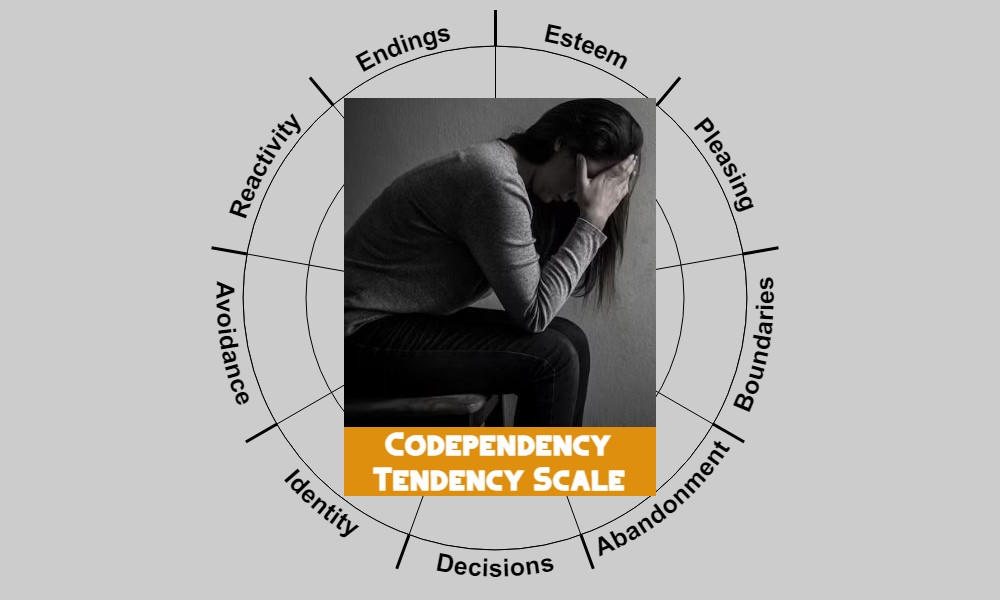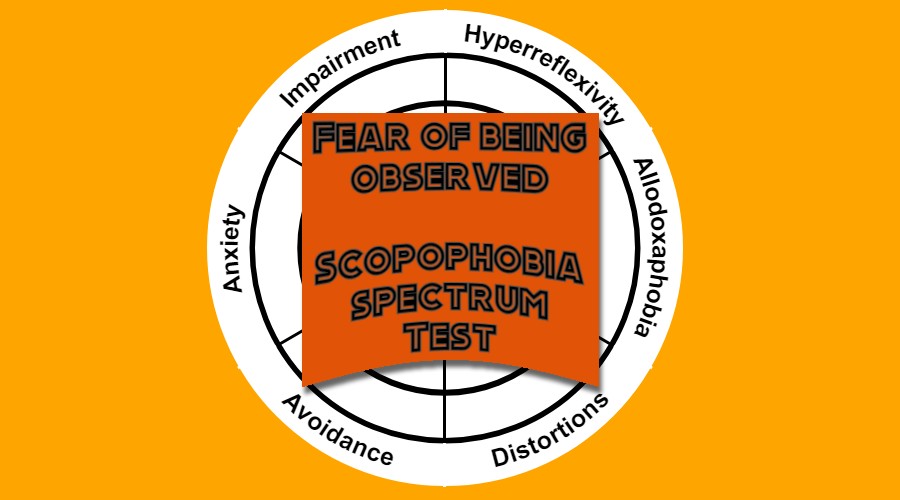Basic information | |
|---|---|
| Statements: | 27 |
| Duration: | 4–6 minutes |
| Type: | Self-assessment Quiz |
| Seminal work: | Deenz Codependency Tendency Scale (DCTS-27) | Publishing year: | 2024 |
| Instructions: | The self-assessment quiz is based on 27 statements and 10 point scale, for each statement you need to indicate the level of agreement. |
Codependency test is based on the preliminary version research, development and validation of Deenz Codependency Tendency Scale (DCTS-27). This self-assessment does not provide mental health advice or it is not deigned for a clinical diagnosis. The results are provided for educational purposes only. Participation in this quiz is completely anonymous, NO data such as your results and personal information is collected or stored for research purposes.
According to the research, 40 million Americans are considered codependent, and among them, women are mostly and severely affected. The research also looks at how codependency and depression are connected and how they impact the overall well-being of an individual.
In modern psychology, codependency is recognized as an emotional and behavioral condition that shows up in unhealthy relationships. Codependency is not officially recognized as a mental health disorder but modern psychology emphasizes studying the impact and correlation with other mental health conditions. People with codependency tend to rely a lot on others for their self-worth, give up their own independence, and sacrifice everything to maintain harmony. Researchers are still trying to understand how a person becomes codependent and how it manifests.
Due to the multidimensional nature of codependency, the need for a standardized measure has been recognized. Deenz Codependency Tendency Scale (DCTS-27) emerged as a helpful self-assessment that aims to measure the tendency or inclination towards codependency traits.
Understanding codependency facets:
“Codependent No More” by Melody Beattie provides valuable insight into the concept of losing oneself to another and it helped us understand how codependency manifests in various aspects of life. Over the years our understanding of the pathological nature of codependency has evolved. Researchers suggest that codependency is not limited to relationships only and there are various other domains such as workplaces, partnerships, friendship, or romantic relationships that can also contribute to the development of pathological traits of codependency. Deenz codependency scale focuses on the basic dimensions of personality and pathological characteristics that show up when a person becomes codependent.
Esteem : Esteem is about how we feel about ourselves. When we have low self-esteem, we doubt ourselves and feel bad about our abilities. People with codependency rely heavily on others, they perceive themselves as inadequate. As a major trait of codependency, self-esteem is not about what we think about ourselves – it is about how we behave and how we interact in situations. An individual with low self-esteem may refuse to take on challenges, which leads them to rely on other’s validation and approval.
Pleasing: People with codependency often try really hard to make everyone happy sometimes even when they have to aside their own needs and desires for the sake of maintaining peace. They excessively please others because they worry about meeting the expectations of others. While helping others is a positive trait, constantly pleasing can lead to feelings of frustration and anxiety.
Boundaries: Difficulty setting boundaries— Boundaries define what is okay and not okay in our relationships. Having healthy boundaries helps us feel safe and respected, allowing us to maintain a sense of autonomy. It is like knowing when to say “no” and when to say “yes” to things that benefit our overall well-being. People with codependency often find themselves saying “yes” to things they don’t want to do.
Abandonment: Fear of abandonment— People who tend to have deep fear of being left alone, seek reassurance and attention to ease their anxiety. The fear of abandonment often goes to great lengths to avoid being alone. They put their well-being at risk to avoid conflicts and attempt to keep their unhealthy relationships intact.
Decisions: Difficulty making decisions— Due to the lack of confidence and low self-esteem, codependent individuals face difficulty making decisions. They worry about the consequences of their actions and do not want to take the risk. They heavily rely on other’s choices to combat rejection.
Identity: Lack of personal identity- Identity is not just about the unique fingerprint that makes us who we are but it is about our own interests, values, and beliefs. Codependent individuals tend to adopt the interests, values, and beliefs of others, sacrificing their own sense of self. They might give up their own hobbies and neglect self-care to please others. The behavior may lead to losing touch with oneself and may have serious consequential on emotional wellbeing.
Avoidance: Avoidance of conflict- Avoidance can provide temporary relief but it is not a permanent solution. People with codependency avoid addressing conflicts, worrying that it may lead to conflict. It is like preferring to keep the peace at any cost.
Reactivity: Overly reactive to others- Reactivity is how strongly we respond to things that happen around us. People with codependency experience heightened emotional reactivity, they strongly react to the emotions and behaviors of others. They become overly emotional or anxious in response to stress or uncertainty.
Endings: Difficulty in ending unhealthy relationships- Sometimes, we need to set our boundaries and end unhealthy relationships to keep ourselves safe and protect our values. People with codependency struggle to let go of their relationships, even if they are harmful to their own well-being. They often hope that things will get better, but it makes them more prone to be emotionally hurt and dependent.
References
- Hughes-Hammer, C., Martsolf, D. S., & Zeller, R. A. (1998). Depression and codependency in women. Archives of Psychiatric Nursing, 12(6), 326-334. https://doi.org/10.1016/S0883-9417(98)80046-0 ↩
- Natalia M. Hoenigmann-Lion PhD & George I. Whitehead PhD (2007) The Relationship Between Codependency and Borderline and Dependent Personality Traits, Alcoholism Treatment Quarterly, 24:4, 55-77. https://doi.org/10.1300/J020v24n04_05 ↩
- Dear, Greg E., Clare M. Roberts, and Lois Lange. “Defining codependency: A thematic analysis of published definitions.” Advances in psychology research 34 (2005): 189-205. ↩
- Beattie, Melody. Codependent no more: How to stop controlling others and start caring for yourself. Hazelden Publishing, 1992. https://books.google.co.in ↩


